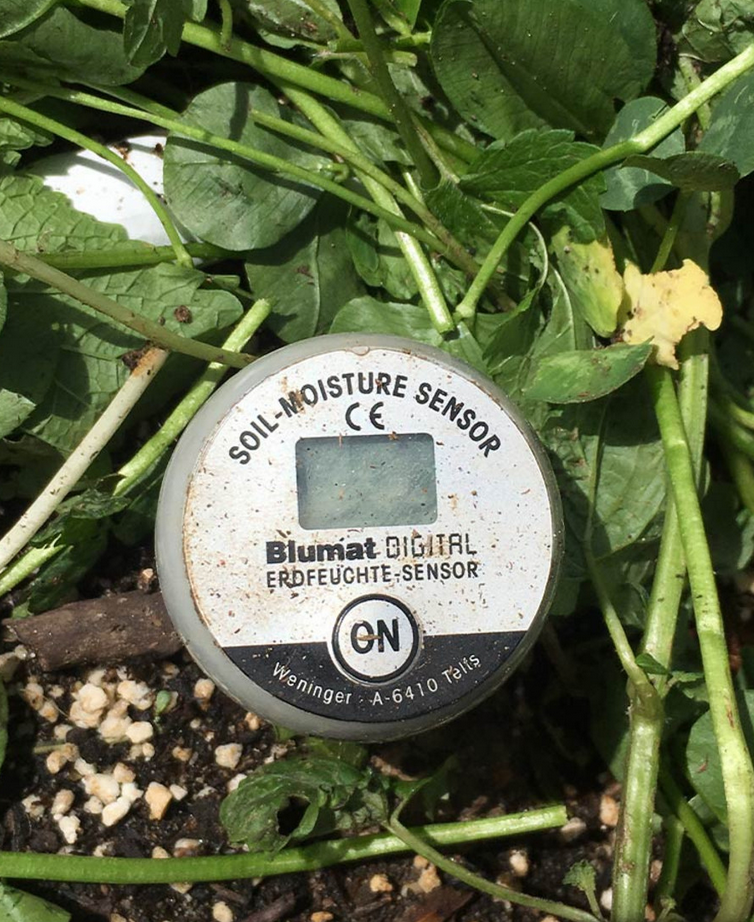Top 10 Advantages of Using a Moisture Meter for Correct Measurements in Your Home
Top 10 Advantages of Using a Moisture Meter for Correct Measurements in Your Home
Blog Article
The Ultimate Guide to Dampness Meters: A Comprehensive Introduction and How They Can Save You Cash
In the world of structure maintenance, construction, and numerous markets, the significance of accurately gauging wetness levels can not be overemphasized. Moisture meters work as vital tools in detecting and checking moisture material in products, helping in protecting against pricey damages and making certain the high quality of items. Recognizing the subtleties of various sorts of moisture meters, their applications, and the prospective cost-saving advantages they use can be a game-changer for professionals and companies alike. Uncovering how these devices can not only streamline processes but also add to financial cost savings is a trip worth embarking on.
Kinds of Wetness Meters
Numerous kinds of moisture meters are available for different applications in different industries. One typical kind is the pin-type dampness meter, which gauges the electric resistance between two pins inserted into a material. This type appropriates for timber, drywall, and various other building materials. Pinless wetness meters, on the various other hand, usage electro-magnetic sensing unit plates to check a larger area without causing damages to the material's surface. Moisture Meter. These meters are suitable for promptly evaluating moisture levels in large areas such as walls and floors.

In addition, there are likewise specialty moisture meters developed for specific products like grain, dirt, or hay. These meters supply accurate dampness readings customized to the distinct properties of the product being examined. Infrared wetness meters determine the thermal residential properties of a product to determine its dampness material non-invasively, making them helpful for applications where pin or pinless meters may not be suitable. Understanding the various sorts of moisture meters readily available can assist sectors select the most suitable device for their specific wetness dimension needs.

Benefits of Utilizing Moisture Meters
Wetness meters provide important benefits in properly keeping an eye on and analyzing moisture levels in diverse products and environments (Moisture Meter). One of the main advantages of making use of moisture meters is the prevention of prospective damages caused by excess wetness. By identifying and addressing high moisture levels early, moisture meters help to stop mold growth, rot, and structural damage in buildings, saving both money and time on repairs. Additionally, wetness meters aid in making sure the top quality of products throughout construction or manufacturing processes. By accurately measuring moisture web content, these devices aid keep the honesty of timber, drywall, concrete, and various other products, minimizing the danger of flaws or failures.
Furthermore, using wetness meters can lead to increased power effectiveness. In farming settings, moisture meters play a vital role in enhancing crop returns by enabling farmers to keep an eye on dirt moisture levels and make educated watering decisions.
How to Select the Right Dampness Meter
When picking a dampness meter, it's essential to make certain that the meter is ideal for the certain material you will be screening. Various materials have varying electric properties that can influence dampness readings, so selecting a meter created for your material is crucial for exact results. By meticulously reviewing these aspects, you can choose a dampness meter that meets i thought about this your demands and offers accurate moisture dimensions for your tasks.
Correct Techniques for Dampness Meter Usage

Price Financial Savings Via Moisture Meter Applications
How can the strategic utilization of dampness meters bring about substantial expense savings across different markets? Wetness meters play a critical duty in expense savings by protecting against possible damage and making sure quality assurance in different sectors. In the farming market, moisture meters help in identifying the optimal time for collecting plants, avoiding over-drying or excess dampness that can affect the last item's quality. This specific tracking helps farmers stay clear of unnecessary losses and optimize their yield.
Similarly, in building, moisture meters help prevent pricey problems by identifying dampness degrees in structure materials, such as timber or concrete, which can bring about structural problems otherwise addressed promptly. By recognizing issue areas early on, specialists can take rehabilitative steps to avoid considerable repairs or replacements, inevitably conserving money and time.
Moreover, in the food helpful resources handling sector, moisture meters are important for checking item quality and guaranteeing compliance with security laws. By properly gauging moisture content in foodstuff, producers can stop wasting, keep quality, and lower waste, resulting in significant cost savings. On the whole, the critical application of dampness meters is a beneficial financial investment that can lead to considerable expense decreases and enhanced effectiveness across various industries.
Conclusion
In conclusion, dampness meters are useful tools for measuring and Bonuses identifying wetness degrees in different products. By making use of the ideal moisture meter and complying with proper methods, customers can efficiently protect against expensive problems caused by excess dampness.
Moisture meters offer as important devices in spotting and monitoring moisture material in products, aiding in stopping costly problems and guaranteeing the top quality of products. Infrared wetness meters determine the thermal properties of a material to identify its dampness web content non-invasively, making them useful for applications where pin or pinless meters may not be ideal.Dampness meters offer vital advantages in precisely checking and assessing wetness levels in diverse products and settings. In agricultural setups, moisture meters play a crucial function in enhancing crop yields by enabling farmers to keep an eye on soil wetness degrees and make educated watering decisions.In final thought, moisture meters are beneficial tools for detecting and determining moisture degrees in various products.
Report this page